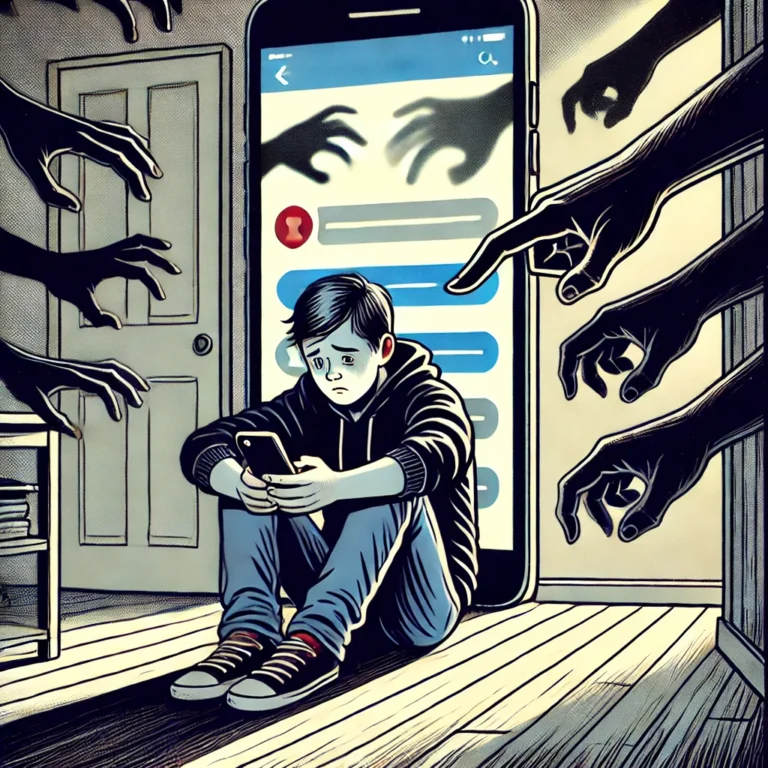Cyberbullying isn’t just some abstract internet issue—it’s ruining lives. In Nova Scotia, families who lost children to online harassment are demanding tougher laws, arguing that the current system lets bullies walk away without consequences. And they’re not wrong. If someone can openly mock a grieving family and still avoid any legal repercussions, what does that say about the law?

A Tragic Wake-Up Call for Nova Scotia
Pam Murchison knows this nightmare all too well. Her daughter, Jenna Bowers, was relentlessly bullied—both at school and online. In January 2011, at just 15 years old, Jenna took her own life. And if that wasn’t devastating enough, an anonymous Facebook user later claimed responsibility, laughing about it.
That wasn’t an isolated incident. Jenna’s name appeared on a disturbing list—alongside two other Nova Scotia girls, Courtney Brown and a third unnamed victim—allegedly targeted by a cyberbullying group. All three died by suicide. And yet, the legal response? A task force. More meetings. More data collection. But no immediate action.
Const. Todd Taylor of the Truro Police Service was blunt: “He’s laughing in our faces. He admitted to being responsible for Jenna’s suffering, and yet, nothing changes.” Without real consequences, cyberbullies are free to keep terrorizing their victims.
Loopholes and Lack of Accountability
Right now, Nova Scotia’s cyberbullying laws don’t give police the tools they need. Investigations hit dead ends because officers can’t easily access online data. There’s no clear protocol for working with internet providers, and unless a direct criminal act—like death threats—is involved, charges rarely stick.
The Opposition Liberals suggested a basic fix: require schools to notify internet service providers when bullying happens. The Progressive Conservatives went further, proposing actual fines for cyberbullying, along with parental responsibility clauses—if your kid is harassing someone online and you ignore it, you could be on the hook.
These aren’t extreme measures. If anything, they’re overdue. The internet gives bullies a level of anonymity that didn’t exist before. It’s not like old-school playground bullying, where at least you knew who was behind it. Now, kids deal with anonymous hate on platforms like Formspring (now defunct), where cruel messages can pile up with no way to fight back.
What Can Actually Be Done?
Nova Scotia parent Marsha Milner isn’t waiting for politicians to figure it out. After her children lost their friend Jenna, she started pushing for Jenna’s Law—a policy that would mandate counseling for bullies. “A lot of these kids are victims themselves,” Milner points out. “Punishment alone won’t fix this.”
Milner even joined Formspring herself, responding to bullies directly. The result? More attacks. “They told me I was useless, that I should get off the site. But I try to talk them through it, ask if they’ve been bullied before.”
Her point is simple: stopping cyberbullying means more than just punishing offenders. It requires education, support for victims, and a way to intervene before things escalate.
Nova Scotia’s Cyberbullying Task Force: Will It Actually Do Anything?
After mounting pressure from parents, Nova Scotia announced a cyberbullying task force in 2011. Education Minister Ramona Jennex promised a full review, bringing in teachers, police, parents, and mental health professionals. The goal? To assess how bad the problem is and recommend solutions.
Some of the key areas under review:
- How often cyberbullying happens in schools
- Whether provincial laws need to be stronger
- How school administrators should handle online harassment
- Raising awareness and improving digital literacy
That sounds promising on paper. But will it lead to real change? Parents like Murchison and Milner are still asking that question.
Cyberbullying Laws Need Teeth, Not Just Talk
We already know cyberbullying has deadly consequences. Nova Scotia has seen it firsthand. And yet, cases like Jenna Bowers’ still end in frustration, with families left mourning and bullies walking free.
Stronger laws, actual enforcement, and better education are all part of the solution. But until there are actual consequences for cyberbullies, this cycle won’t end. If nothing changes, nothing changes.
Author: Ryan Calloway
Bio: Ryan Calloway is a digital safety advocate and former cybersecurity consultant specializing in online harassment, privacy laws, and cyberbullying prevention strategies.


